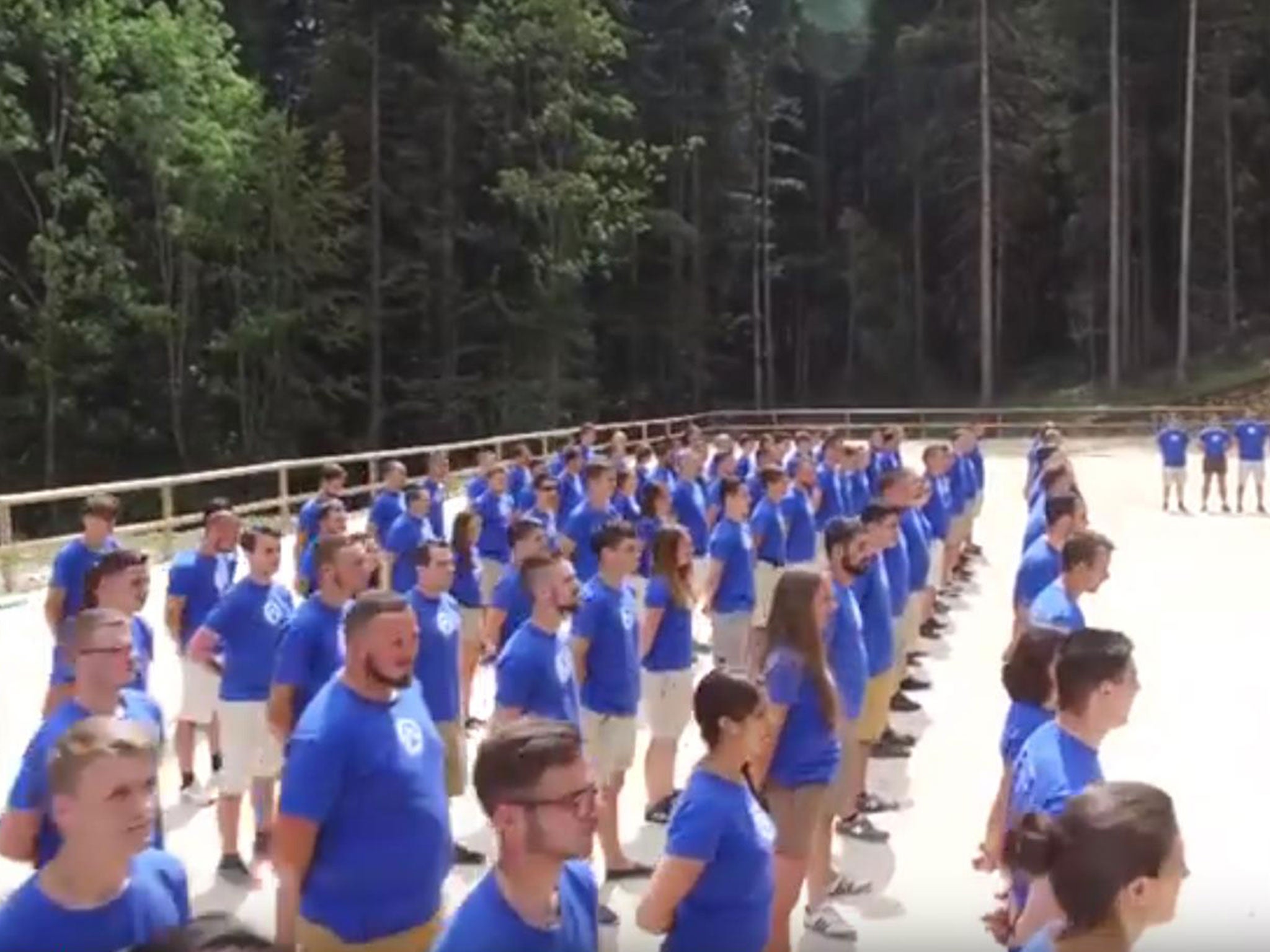Twitter suspends dozens of white nationalist accounts that spread Christchurch shootings conspiracy theory
Generation Identity spread 'great replacement theory' that inspired six fatal attacks since 2018

Your support helps us to tell the story
From reproductive rights to climate change to Big Tech, The Independent is on the ground when the story is developing. Whether it's investigating the financials of Elon Musk's pro-Trump PAC or producing our latest documentary, 'The A Word', which shines a light on the American women fighting for reproductive rights, we know how important it is to parse out the facts from the messaging.
At such a critical moment in US history, we need reporters on the ground. Your donation allows us to keep sending journalists to speak to both sides of the story.
The Independent is trusted by Americans across the entire political spectrum. And unlike many other quality news outlets, we choose not to lock Americans out of our reporting and analysis with paywalls. We believe quality journalism should be available to everyone, paid for by those who can afford it.
Your support makes all the difference.Dozens of white nationalist Twitter accounts that spread a conspiracy theory which inspired the Christchurch shooter and other terrorists have been suspended.
Key figures in Generation Identity saw their profiles shut down alongside national and regional factions in Germany, Austria, Italy, France and Denmark.
The pan-European group calls for a “remigration” of Muslims from Europe and spreads a conspiracy theory claiming that white people are being eradicated.
The theory’s name – the “great replacement” – was the title of a manifesto posted by Brenton Tarrant before the Christchurch shooting, which itself inspired several other terror attacks.
Tarrant donated money to the Austrian branch of Generation Identity and exchanged friendly emails with its leader Martin Sellner, who has been banned from entering Britain and the US on security grounds.
He and other leading figures in the network had been allowed to remain on Twitter, despite widespread calls for action following the March 2019 Christchurch shootings, until Friday.
NBC said more than 50 white nationalist accounts had been removed but Twitter would not publicly confirm the figure.
“The accounts in question were suspended for violating our policies in relation to violent extremism,” a spokesperson said.
It came after the Global Project Against Hate and Extremism released a critical report saying Twitter and YouTube had allowed Generation Identity to run “rampant”.
The report said its core ideology had inspired six fatal attacks since October 2018, in Christchurch, two US synagogues, El Paso, Halle and Hanau in Germany.
“It would be inconceivable for social media platforms to allow Isis propaganda to spread and grow unchecked, but that is exactly what is happening with Identitarianism,” it added.
Researchers found 67 Twitter accounts for Generation Identity chapters in 14 countries, with nearly 140,000 followers.
Sellner has already gathered more than 50,000 followers on the Telegram encrypted messaging app, where he told followers that he had expected Twitter to remove his account last year.
Julia Ebner, a senior research fellow at the Institute for Strategic Dialogue (ISD), told The Independent that the delay had given him and other leaders time to prepare for a shift off mainstream platforms.
“That’s the massive issue with a time-lag in taking down accounts,” she added.
“I think that’s a really big mistake and hopefully that’s something the tech platforms will learn for the future so they have better coordination on these things.”
Matthew McGregor, campaigns director at Hope Not Hate, said: “Any action against those disseminating hate and division on popular social media platforms is always welcome, though it has in truth taken far too long for Twitter and others to wake up to the problem - we fear the damage is now already done.
“Tech companies are still way behind the curve when it comes to taking racists offline, despite these bans Twitter still seems content to let former KKK leader David Duke use their platform to spread antisemitic conspiracies and hate.”
Ms Ebner said that several groups and think-tanks had previously warned Twitter that Generation Identity’s propaganda was inspiring attacks around the world, but that it was “good to see they’ve given into the pressure”.
“In the past few months Generation Identity outlets in different countries have been spreading really disinformation and conspiracy theories around coronavirus,” she added.
They include attempts to link migration to coronavirus, including allegations that the first case in Italy was a migrant, and that asylum seekers in France are committing robberies during the pandemic.
The UK branch of Generation Identity was formally dissolved in January, after infighting caused the group to split from the European leadership and rebrand itself as the Identitarian Movement.

Ms Ebner said that although there were indications that the group’s offline structures had been weakened, their online networks had not.
“It’s becoming more of a loose network than the top-organised group with a standardised strategy,” she explained.
“It’s more fragmented right now but that doesn’t mean we should underestimate the danger from their overarching ideology.”
Last year, the head of UK counterterror policing named far-right extremism as the fastest growing terror threat, despite Islamist-inspired plots and attacks remaining more frequent.
But when asked by The Independent how Generation Identity was being combatted in September, Assistant Commissioner Neil Basu said he had “no plan” because the group did not cross the threshold for current terror laws.
Last month, a review was launched over concerns there were gaps in the law which allow extremists including Generation Identity to “operate with impunity”.
The former head of counterterrorism, Sir Mark Rowley, is leading the inquiry which will examine whether existing legislation adequately addresses “hateful extremism”.
Join our commenting forum
Join thought-provoking conversations, follow other Independent readers and see their replies
Comments